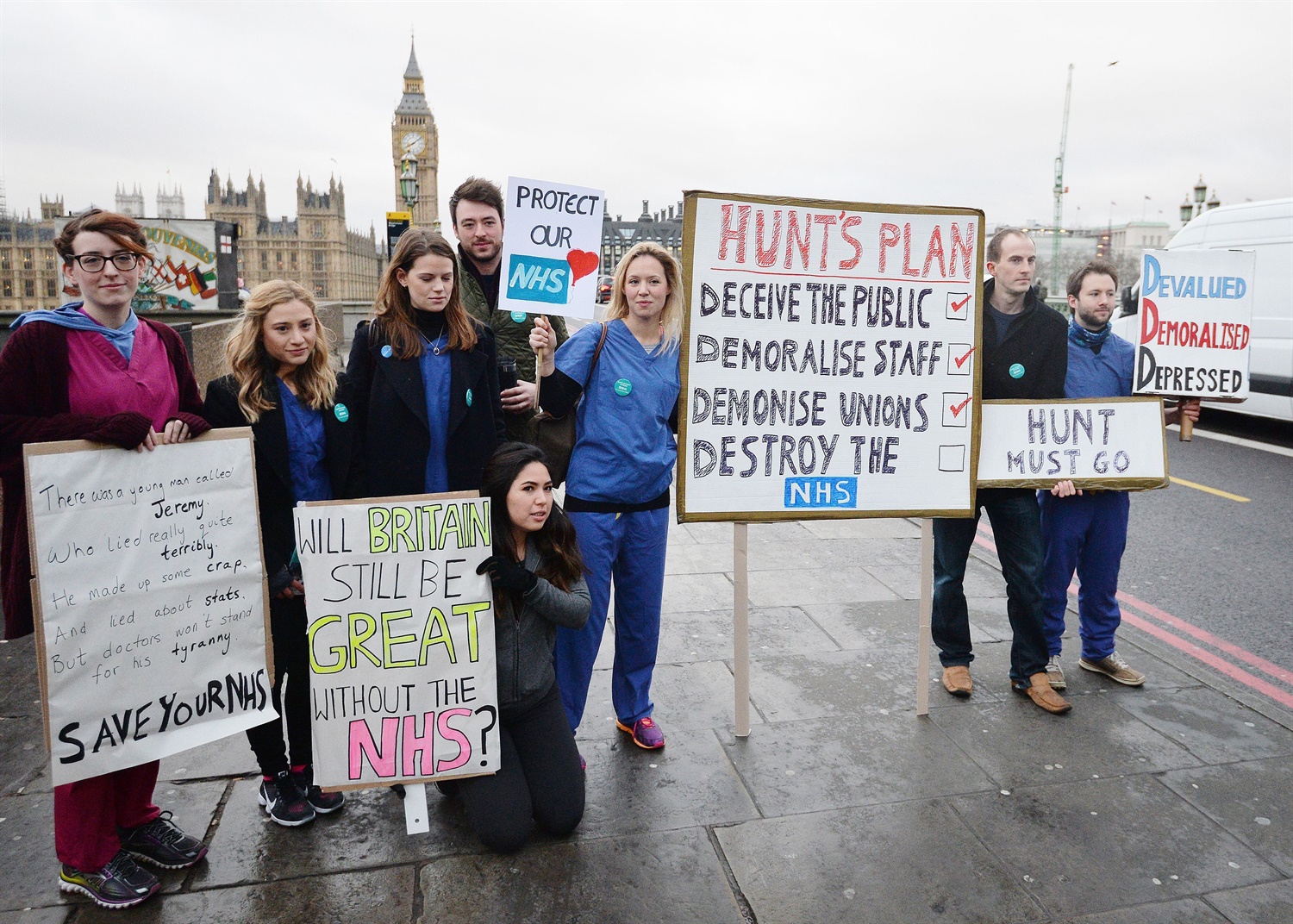11.02.16
Hunt confirms junior doctor contracts will be imposed
12.30pm UPDATE
The health secretary confirmed in his statement that the contract will be imposed.
Jeremy Hunt told the House of Commons that junior doctors working one in four or more Saturdays would receive a 30% pay premium.
He admitted this represents a reduction in current rates but said hospitals must be able to afford additional weekend rostering.
In response to questions by shadow health secretary Heidi Alexander, he said: "When we have a seven day NHS in a few years time people will say it was obvious that this was the right thing to do."
He also said that the government will give doctors a 13.5% basic pay rise and that he has asked Dame Sue Bailey to lead a review into measures outside the contract that will improve morale.
Royal College of GPs chair Dr Maureen Baker said: "We are shocked and dismayed at the Government’s decision to impose a contract on our dedicated and committed junior doctors. Imposing a deal on junior doctors is wrong-headed, will inevitably damage morale across the NHS – and may damage patient care."
NHS England chief executive Simon Stevens said: "Drawn out industrial action over contracts and pay would mean further disruption to patients who are relying on NHS care, with thousands more operations cancelled and check-ups delayed. Under these highly regrettable and entirely avoidable circumstances, hospitals are rightly calling for an end to the uncertainty, and the implementation of the compromise package the Dalton team are recommending.”
ORIGINAL STORY:
The government’s lead negotiator with the junior doctors has written to the health secretary urging the government to do “whatever it deems necessary” to end the dispute and implement a new service pattern, after the BMA rejected a final offer.
This makes it almost inevitable that ministers will impose a new contract, without the junior doctors' agreement.
In a letter yesterday to health secretary Jeremy Hunt, which has just been made public, Royal Salford NHS FT executive Sir David Dalton says he has had no assurance that the BMA will accept a last-minute offer and he has concluded that there is no realistic possibility of a negotiated settlement.
It has been revealed that the BMA’s council chair Dr Mark Porter and the junior doctors’ committee chair Dr Johann Malawana rejected the offer, which included a reduction of the hours designated as ‘plain-time’ and therefore not receiving anti-social hours pay, and premium rates to junior doctors working one out of four weekends or more. Dr Malawana replied insisting that the government accept an offer the doctors made in late December, which would increase out-of-hours pay by 14% and additional hours by 9%.
Dalton told Hunt: “Everyone’s first preference has always been for a negotiated outcome. Unfortunately this no longer seems possible. Following consultation with chief executives and other leaders in the service, it is clear that the NHS needs certainty on this contract and that a continuation of a dispute, with a stalemate and without any clear ending, would be harmful to service continuity, with adverse consequences to patients. On this basis I therefore advise the government to do whatever it deems necessary to end uncertainty for the service and to make sure that a new contract is in place which is as close as possible to the final position put forward to the BMA yesterday.”

He says this position is supported by both the NHS Confederation and NHS Providers and includes a list of 18 other NHS chief executives who consider the proposal “fair and reasonable”.
The strike, which ran from 8am yesterday to 8am today, was the second in a bitter and long-running dispute over health secretary Jeremy Hunt’s efforts to impose longer working hours on weekdays and additional hours on weekends without increased pay, following a similar strike last month.
At least 2,884 operations were cancelled, although emergency care doctors didn’t strike and GP services were largely unaffected.
It now looks likely that the government will impose the proposed contract on doctors, a position supported by senior NHS executives. NHS Providers’ chief executive Chris Hopson said yesterday: “Four years later and 3,000 operations cancelled today, our members are saying that, to run their trusts effectively, we can’t carry on like this. For them, if the BMA won’t accept a fair and reasonable offer, then it would be legitimate and sensible for the secretary of state to consider imposition."
Hunt is expected to make a statement to the Commons today.
Dr Malawana told the Guardian: “Junior doctors already work around the clock, seven days a week and they do so under their existing contract. If the government want more seven-day services then, quite simply, they need more doctors, nurses and diagnostic staff, and the extra investment needed to deliver it.”
(Images c. John Stillwell)